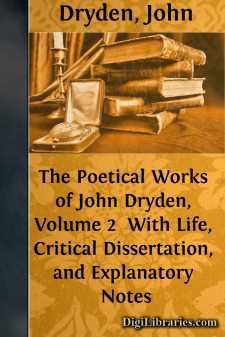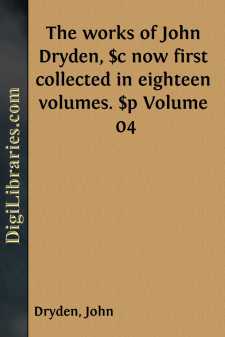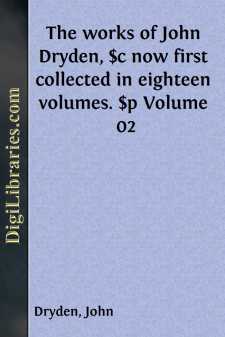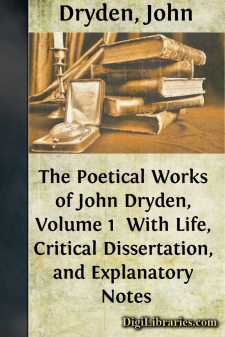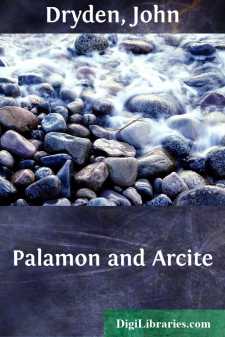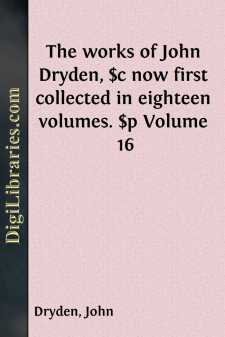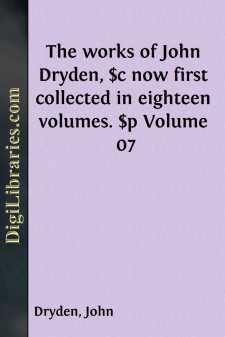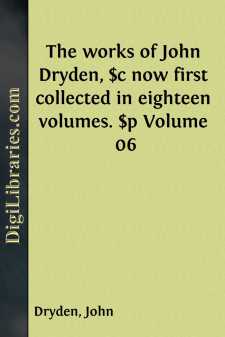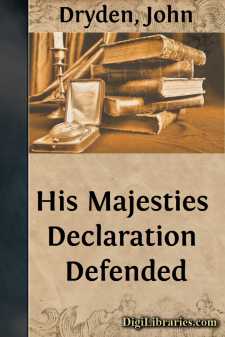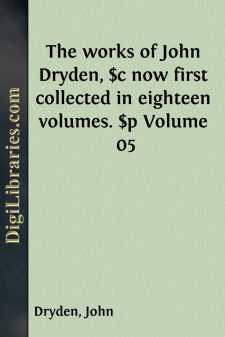Categories
- Antiques & Collectibles 13
- Architecture 36
- Art 48
- Bibles 22
- Biography & Autobiography 813
- Body, Mind & Spirit 142
- Business & Economics 28
- Children's Books 17
- Children's Fiction 14
- Computers 4
- Cooking 94
- Crafts & Hobbies 4
- Drama 346
- Education 46
- Family & Relationships 57
- Fiction 11829
- Games 19
- Gardening 17
- Health & Fitness 34
- History 1377
- House & Home 1
- Humor 147
- Juvenile Fiction 1873
- Juvenile Nonfiction 202
- Language Arts & Disciplines 88
- Law 16
- Literary Collections 686
- Literary Criticism 179
- Mathematics 13
- Medical 41
- Music 40
- Nature 179
- Non-Classifiable 1768
- Performing Arts 7
- Periodicals 1453
- Philosophy 64
- Photography 2
- Poetry 896
- Political Science 203
- Psychology 42
- Reference 154
- Religion 513
- Science 126
- Self-Help 84
- Social Science 81
- Sports & Recreation 34
- Study Aids 3
- Technology & Engineering 59
- Transportation 23
- Travel 463
- True Crime 29
The Poetical Works of John Dryden, Volume 2 With Life, Critical Dissertation, and Explanatory Notes
by: John Dryden
Description:
Excerpt
EPISTLES.
EPISTLE I.
TO MY HONOURED FRIEND SIR ROBERT HOWARD,[1] ON HIS EXCELLENT POEMS.
As there is music uninform'd by art
In those wild notes, which, with a merry heart,
The birds in unfrequented shades express,
Who, better taught at home, yet please us less:
So in your verse a native sweetness dwells,
Which shames composure, and its art excels.
Singing no more can your soft numbers grace,
Than paint adds charms unto a beauteous face.
Yet as, when mighty rivers gently creep,
Their even calmness does suppose them deep; 10
Such is your muse: no metaphor swell'd high
With dangerous boldness lifts her to the sky:
Those mounting fancies, when they fall again,
Show sand and dirt at bottom do remain.
So firm a strength, and yet withal so sweet,
Did never but in Samson's riddle meet.
'Tis strange each line so great a weight should bear,
And yet no sign of toil, no sweat appear.
Either your art hides art, as Stoics feign
Then least to feel when most they suffer pain; 20
And we, dull souls, admire, but cannot see
What hidden springs within the engine be:
Or 'tis some happiness that still pursues
Each act and motion of your graceful muse.
Or is it fortune's work, that in your head
The curious net,[2] that is for fancies spread,
Lets through its meshes every meaner thought,
While rich ideas there are only caught?
Sure that's not all; this is a piece too fair
To be the child of chance, and not of care. 30
No atoms casually together hurl'd
Could e'er produce so beautiful a world.
Nor dare I such a doctrine here admit,
As would destroy the providence of wit.
'Tis your strong genius, then, which does not feel
Those weights would make a weaker spirit reel.
To carry weight, and run so lightly too,
Is what alone your Pegasus can do.
Great Hercules himself could ne'er do more,
Than not to feel those heavens and gods he bore. 40
Your easier odes, which for delight were penn'd,
Yet our instruction make their second end:
We're both enrich'd and pleased, like them that woo
At once a beauty and a fortune too.
Of moral knowledge poesy was queen,
And still she might, had wanton wits not been;
Who, like ill guardians, lived themselves at large,
And, not content with that, debauch'd their charge.
Like some brave captain, your successful pen
Restores the exiled to her crown again: 50
And gives us hope, that having seen the days
When nothing flourish'd but fanatic bays,
All will at length in this opinion rest,—
"A sober prince's government is best."
This is not all: your art the way has found
To make the improvement of the richest ground;
That soil which those immortal laurels bore,
That once the sacred Maro's temples wore.
Eliza's griefs are so express'd by you,
They are too eloquent to have been true. 60
Had she so spoke, Æneas had obey'd
What Dido, rather than what Jove had said....


